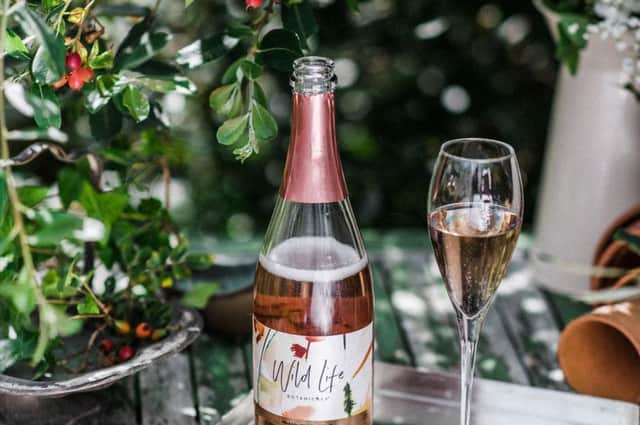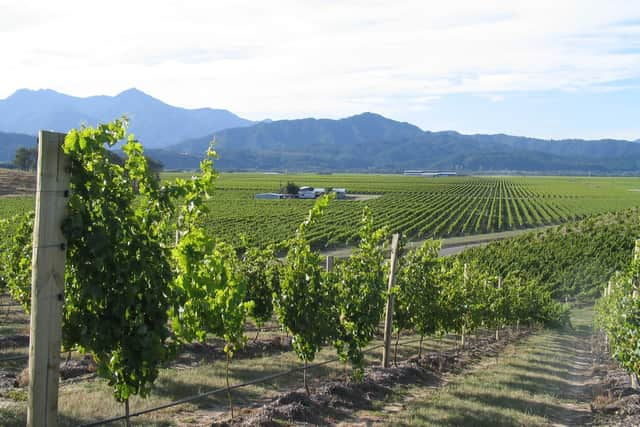There is a good selection of drinks out there if you are doing 'dry January' - Christine Austin


December is not the usual month for abstinence but there were none of the usual parties and lunches and I was able to dovetail my annual health MOT at the end of the fortnight. My lovely but fairly brisk doctor was not impressed. “If all my patients gave up drinking before they came to see me, I would be out of a job,” she grumbled.
Getting a clean bill of health is quite an achievement for me, especially as I can sometimes taste hundreds of wines in a week, so a dry fortnight was almost like pressing the reset button on my liver. There are other benefits too. Better sleep, a little weight loss and less damage to my cellar.
Advertisement
Hide AdAdvertisement
Hide AdDuring that time, I tasted some of the no-alcohol drinks on the market with various results. Taking alcohol out of wine takes the heart out of the drink. There is loss of texture and flavour that is often replaced with sugar which does nothing for the overall balance. However, there are some good products out there and here are some of the best.


Natureo: This range comes from Torres in Spain which was the first producer to tackle very low alcohol wines in a serious way. The wines are made by taking regular wine, then spinning it so fast that the alcohol comes off, just like the cream comes off the milk.
This is called the spinning cone method, and if you have ever used a centrifuge, you will know how it works. At some point in the process, the flavours come off too, but they are collected and added back, making sure that everything harmonises. Also, unlike many low or no-alcohol wines, Torres doesn’t add lots of sugar to compensate for the lack of alcohol.
I enjoyed drinking these, and if you are having a dry January, they go well with the typical lettuce leaf diet that usually accompanies this period of resurrecting your gym membership, random exercise and setting unrealistic goals.
Advertisement
Hide AdAdvertisement
Hide AdThe zero-alcohol drinks come in three varieties. The white is made from Muscat grapes and is dry, floral and refreshing. The rosé is rather good and my favourite of the three with just enough red fruit flavours and a rounded texture. The red is good too but seems to be missing its alcohol a little. All are available in Sainsbury’s, Waitrose and at Field & Fawcett at around £6.
McGuigan: Australian producer McGuigan is also using a spinning cone to make its McGuigan Zero wines. The Sauvignon Blanc really has the crisp taste of the grape and will make a good aperitif when everyone else is drinking the full-strength version.
There is a soft, rounded Chardonnay while the rosé has lots of red berry fruit with a little spritz which makes it very salad friendly. There is a touch more sweetness in this but not so much to make it cloying. These are available in Morrisons, Asda and Sainsbury’s at around £3.99.
Sparkling zero: January sees many birthdays in my household, so a glass of fizz always goes down well. If you are cutting down on alcohol but, like me, have several celebrations this month then La Gioiosa (Morrisons, £5) tastes very much like a prosecco, with a good frothy fizz, a zing of citrus and a rounded palate.
Advertisement
Hide AdAdvertisement
Hide AdBelle & Co also has a good sparkle and taste, made from fermented grape juice and green tea. It has a refreshing, floral and citrus taste and goes down well with anyone planning to drive home from a party.
The white and the slightly fuller flavoured rosé version are available at Asda and Morrisons at around £3.50.
Bubbles with benefits: Wild Life Botanicals has taken a different approach to no and low-alcohol drinking. Made from a base of de-alcoholised wine, Wild Life has an infusion of botanicals, vitamins and minerals, which deliver essential nutrients as well as enjoyment.
With eight active vitamins and minerals, Wild Life could provide the boost that your January drinking needs. The flavours are good too. The Nude version has elements of damiana, lemon balm, ashwagandha and rosemary botanicals and tastes of citrus, mango and herbs while the Blush includes damask rose, which gives a lifted floral note.
Advertisement
Hide AdAdvertisement
Hide AdBoth Wild Life Botanicals declare 0.5% alcohol, and cost £16 (Harvey Nichols) for a 75cl bottle. They are also available in 250cl cans (www.wildlifebotanicals.co.uk), which could be useful as a post-workout refreshing drink.
Spirits: There are many no-alcohol spirits on the market which do just the same job as a bottle of gin – without the kick of alcohol. Most of them are delicious, including the one that I came across this season, the citrus-laden, tangerine zesty Atopia (Amazon, £25).
This looks and tastes pretty much like gin and mixed with a low-calorie tonic it will provide a thirst-quenching drink, but I really have a problem with the price of some of these drinks.
Essentially, they are flavoured water, and do not attract the £7.54 per bottle excise duty that is charged on gin, so I have a difficulty understanding why a bottle of decent gin can cost less than £20, while a non-alcohol “spirit” costs a lot more.
Advertisement
Hide AdAdvertisement
Hide AdDoctor’s low-alcohol wine: Definitely in the lower-alcohol category, tipping the scales at 9.5% alcohol, the Doctor’s range of wine from New Zealand is made by established winemaker Dr John Forrest.
He has developed a way of reducing the alcohol level in his wines by shading the grapes, early picking and careful fermentation. The result is a range of wines with lower alcohol than similar New Zealand wines, but they are definitely not for anyone trying to have a “dry” January.
I have always enjoyed the zippy, tropical fruit flavours of the Doctor’s Sauvignon Blanc, from Marlborough (Waitrose, £8.99), but I came across the Pinot Noir recently and was very impressed that it had both the weight and rounded red fruits of a good Kiwi Pinot. This is still making its way out into retail shops so snap up a bottle when you see it.